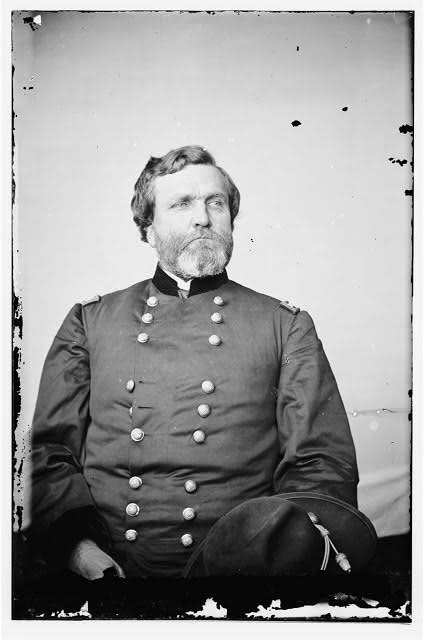On December 16, 1864, President Abraham Lincoln sent the following telegram to Major-General George Henry Thomas, who was then the overall commander of Union soldiers in Nashville, Tennessee:
Please accept for yourself, officers, and men, the nation’s thanks for your good work of yesterday. You made a magnificent beginning; a grand consummation is within your easy reach. Do not let it slip.
Lincoln’s telegram referenced the events of December 15, 1864, in the Battle of Nashville. The Union soldiers commanded by Thomas met an outnumbered Confederate Army under the command of Lieutenant General John Bell Hood.

The American Battlefield Trust explains that Thomas had almost been relieved of his command prior to the battle due to disagreements with Lincoln and General Ulysses S. Grant:
Hood reached Nashville on December 2 and began to stake out a position south of the city, hoping to draw the Union forces into a costly attack. The overall Federal commander in Nashville, Maj. Gen. George H. Thomas, received telegrams from Ulysses S. Grant and Abraham Lincoln urging him to strike the Confederate army. Thomas delayed the attack for nearly two weeks, citing freezing temperatures, full-blown ice storms, and limited cavalry support, but his superiors were unimpressed. Grant was on the verge of sacking Thomas before word arrived that Thomas was on the move.
Mr. Ernest B. Furgurson explained in a 2007 article for Smithsonian Magazine that Grant had already made arrangements to travel to Nashville to relieve Thomas of his command when Thomas engaged Hood on December 15:
Then, just when he was ready, a sleet storm froze both armies in place for days. Grant, furious that Thomas had failed to engage the enemy, decided to relieve him from command, first with one general, then another. Finally he started to go west to fire him in person. But before he left Washington, the ice melted in middle Tennessee.
As Lincoln indicated in his telegram, the first day of the two-day Battle of Nashville went well for Thomas’s Union forces. From the Battlefield Trust article on the battle:
On the Confederate left, Thomas swung the bulk of his forces out of the defensive of Nashville in a grand-wheeling offensive. Confederate Redoubts #1-#5 fell as the Federals outflanked and overwhelmed the left of Hood’s line. What remained of Hood’s army retreated two miles further south during the night and established a new defensive line.
It was against this backdrop that Lincoln sent his Telegram to Thomas – the Union forces made strong progress, but its work was not yet done. Lincoln expressed his view that based on the first day of battle, victory was well within reach – and it was for that reason he warned Thomas to not miss the opportunity to destroy Hood’s Army of Tennessee. (Lincoln had already churned through a number of generals for what he viewed as lack of initiative and missed opportunities.)
Suffice it to say, Thomas did not let the opportunity created by his soldiers on December 15 slip away. Furgurson summarized the two-day affair:
In two days his troops crushed the Rebel army. His infantry, including two brigades of U.S. Colored Troops, smashed into Hood’s troops while the Union cavalry, dismounted with its fast-firing Spencers, curled around and behind the Rebel left.
Battlefield Trust noted the broader significance of Thomas’s victory in Nashville:
Hood ordered his army off of the field, ending offensive operations. In six months of campaigning, the Army of Tennessee had lost nearly 75% of its fighting force and ceased to be a serious threat to the Federals. The Union victory at Nashville shattered Hood’s Army of Tennessee and effectively ended the war in Tennessee.
Thomas won a spectacular victory at Nashville, and he would later defend his decision to resist Grant’s pressure to engage Hood’s army earlier (one could hardly quibble with the result). While the result of the battle is well-known, it was interesting to find Lincoln’s Telegram, which was composed at the half-way point of the affair.